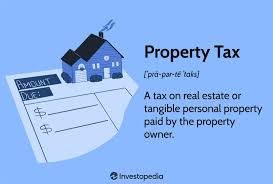Now Reading: “Unlock Big Savings: Master Real Estate Tax Deductions Today 2025!”
-
01
“Unlock Big Savings: Master Real Estate Tax Deductions Today 2025!”
“Unlock Big Savings: Master Real Estate Tax Deductions Today 2025!”

When you own real estate, whether it’s a home, rental property, or commercial building, understanding tax deductions can save you a lot of money. Real estate tax deductions reduce the amount of taxable income you report, which means you pay less in taxes. This guide will explain what real estate tax deductions are, the common types available, and how to use them smartly.
What Are Real Estate Tax Deductions?

A tax deduction lowers your taxable income. When you invest in real estate, you spend money on different costs like mortgage interest, property taxes, repairs, and insurance. The IRS allows you to subtract many of these expenses from your income before calculating your tax bill. This reduces your overall tax liability and helps keep more money in your pocket.
Real estate tax deductions are especially important for landlords and investors because these expenses can be substantial. However, homeowners can also benefit, particularly when it comes to mortgage interest and property taxes.
Common Real Estate Tax Deductions Explained

Here are some of the most important real estate tax deductions you should know:
1. Mortgage Interest Deduction
If you have a mortgage on your home or investment property, the interest you pay on that loan can often be deducted. This is usually the largest deduction for homeowners. For example, if you pay $10,000 in mortgage interest annually, you may subtract that full amount from your taxable income.
2. Property Taxes
Property taxes paid to your local government are deductible. This includes taxes on your primary residence and any rental or investment properties you own. Keep track of your property tax bills throughout the year to claim this deduction easily.
3. Depreciation
For investment properties, you can deduct depreciation. Depreciation is the decrease in the property’s value over time due to wear and tear. The IRS lets you write off a portion of the property’s value each year, reducing your taxable rental income.
4. Repairs and Maintenance
If you own rental property, expenses related to repairs and upkeep are deductible. This includes fixing a leaky roof, painting walls, or repairing plumbing. However, keep in mind that improvements, which increase the property’s value, are usually not deductible immediately but can be depreciated over time.
5. Insurance Premiums
Insurance costs related to your property—such as homeowner’s insurance or landlord insurance—can be deducted. Make sure to separate personal insurance costs from business-related ones if you have rental properties.
6. Professional Services
Fees paid to lawyers, accountants, property managers, or real estate agents involved in managing your property can be deducted. These expenses help keep your real estate business running smoothly.
7. Travel and Transportation
If you travel to your rental property for maintenance, inspections, or to meet tenants, you can deduct related expenses. This may include mileage, parking fees, and tolls. It’s important to keep accurate records to support these deductions.
How to Claim Real Estate Tax Deductions

Claiming real estate deductions depends on the type of property you own:
- Primary Residence: You claim mortgage interest and property tax deductions on Schedule A (Itemized Deductions) of your tax return.
- Rental Properties: Rental income and expenses, including deductions, are reported on Schedule E (Supplemental Income and Loss).
- Commercial Properties: Similar to rental properties, use Schedule E or appropriate business tax forms.
It is essential to keep detailed records of all your expenses, receipts, and financial documents throughout the year. Well-organized paperwork will make it easier to claim deductions and avoid problems in case of an IRS audit.
Tips for Maximizing Your Real Estate Tax Deductions
- Keep Accurate Records: Save all receipts, invoices, and bank statements related to your property expenses.
- Separate Personal and Business Expenses: Only deduct expenses directly related to your rental or investment properties.
- Understand the Difference Between Repairs and Improvements: Repairs are usually deductible in the year they occur, while improvements must be depreciated.
- Consider Hiring a Tax Professional: Real estate taxes can be complicated. A qualified accountant or tax advisor can help you maximize deductions and stay compliant with tax laws.
- Plan Ahead: Tax planning throughout the year can help you make smart spending decisions to increase deductible expenses.
Why Understanding Real Estate Tax Deductions Matters
For property owners and investors, tax deductions can mean the difference between a profitable investment and one that drains your finances. Reducing your tax bill legally allows you to keep more of your earnings and reinvest in your properties or other ventures.
Additionally, knowing your tax deductions helps you make better decisions about buying, selling, or maintaining your properties. It can even influence how you finance your real estate purchases or structure your business.
Final Thoughts
Real estate tax deductions are a powerful tool for property owners to lower their tax burden and improve profitability. Whether you own your home or multiple rental properties, understanding the basics of these deductions is essential.
Always stay informed about current tax laws, as they can change from year to year. By carefully tracking your expenses and seeking expert advice when necessary, you can unlock significant savings and make the most of your real estate investments.
Read More:- Shobha Realty Launches Its Most Luxurious Project Yet—Full Details Inside 2025






















